SAINT RAPHAEL
CATHOLIC CHURCH
Sacraments
Baptism
The origin and foundation of Christian Baptism is Jesus.
Whether you are awaiting the birth of your child, already have a newborn, or have a child who is several months old, we are happy to assist you in preparing for the Sacrament of Baptism. Parents serve as the first and most influential teachers of a child’s faith. The Catechism of the Catholic Church reminds us that baptism “is the basis of the whole Christian life, the gateway to life in the Spirit, and the door which gives access to the other sacraments” (1213).
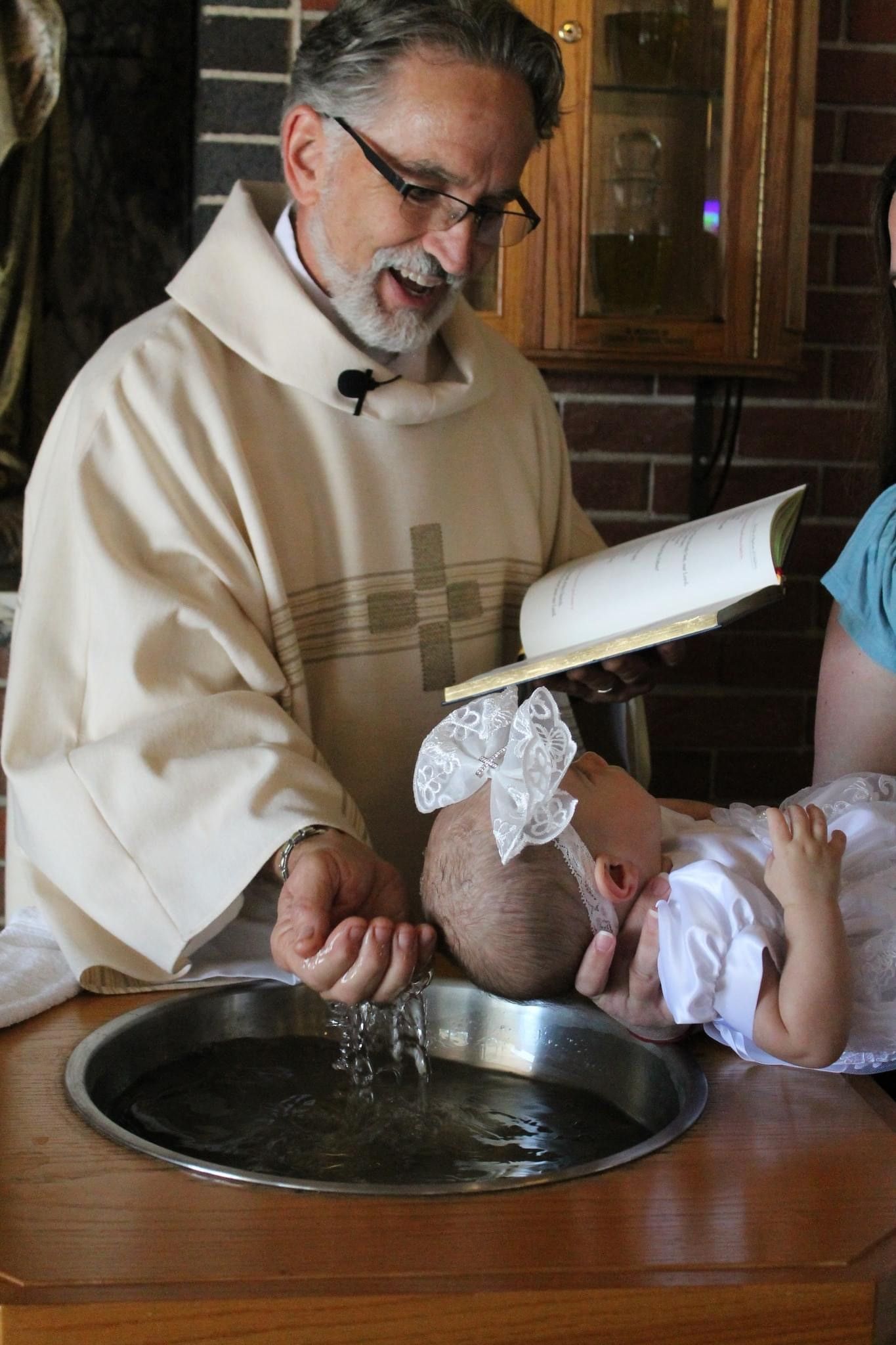
Call the church office at (337) 582-3503 to schedule baptism.
Reconciliation
Jesus entrusted the ministry of reconciliation to the Church.
Not only does it [the Sacrament of Penance] free us from our sins but it also challenges us to have the same kind of compassion and forgiveness for those who sin against us. We are liberated to be forgivers. We obtain new insight into the words of the Prayer of St. Francis: "It is in pardoning that we are pardoned."
Jesus entrusted the ministry of reconciliation to the Church. The Sacrament of Penance is God's gift to us so that any sin committed after Baptism can be forgiven.
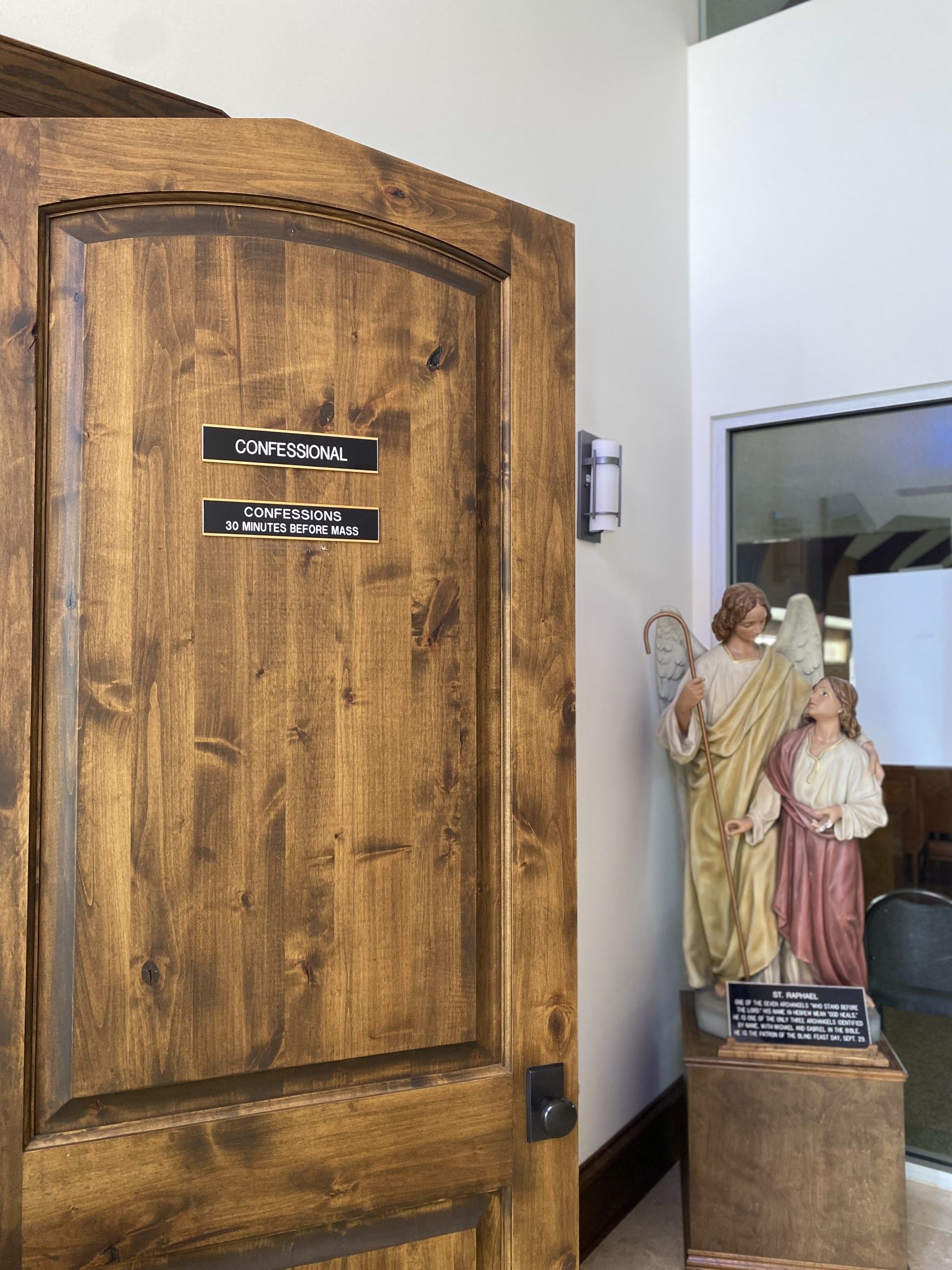
In confession we have the opportunity to repent and recover the grace of friendship with God. It is a holy moment in which we place ourselves in his presence and honestly acknowledge our sins, especially mortal sins. With absolution, we are reconciled to God and the Church. The Sacrament helps us stay close to the truth that we cannot live without God. "In him we live and move and have our being" (Acts 17:28).
Confession is available 30 minutes before each mass.
Eucharist
Celebrated as "the source and summit" of the Christian life
The Eucharist in the Catholic Church is a sacrament celebrated as "the source and summit" of the Christian life. The Eucharist is celebrated daily during the celebration of Mass, the eucharistic liturgy.
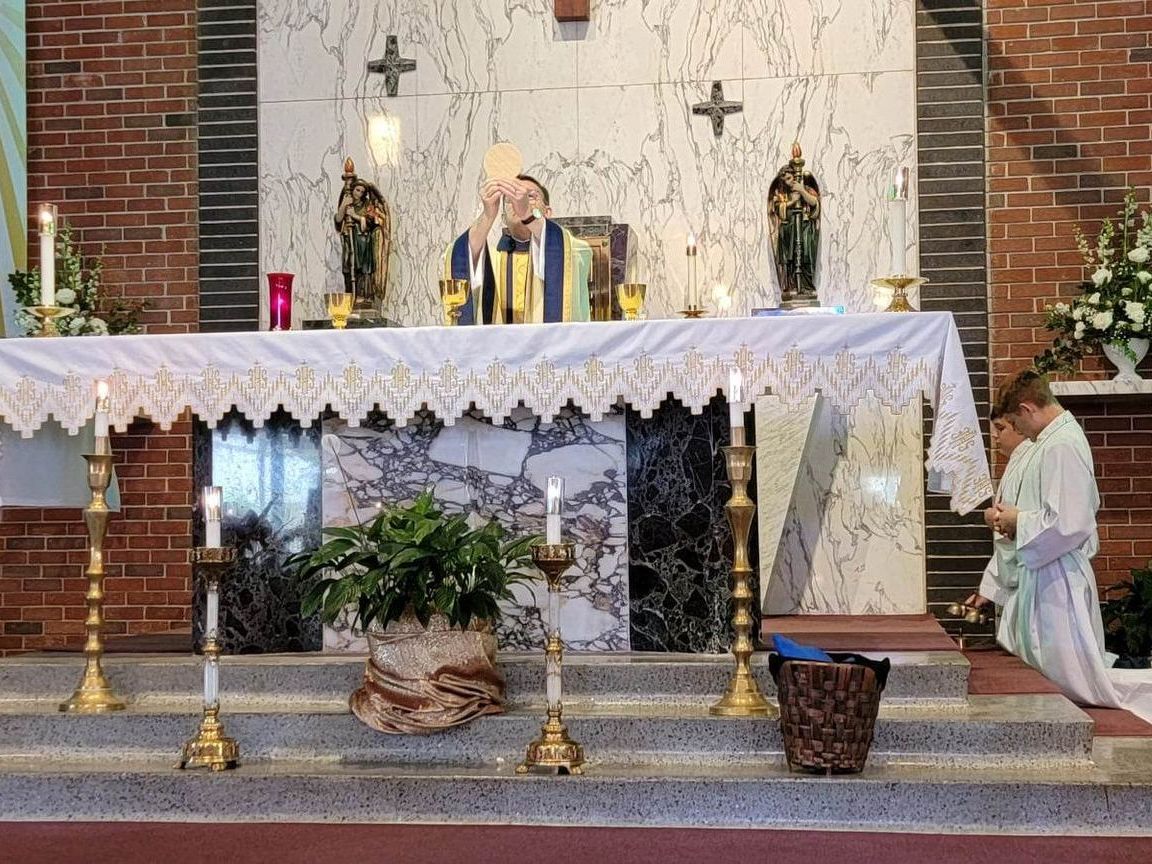
Confirmation
Confirmation deepens our baptismal life that calls us to be missionary witnesses of Jesus Christ.
Please call the church office to speak to the Religious Education Department about the program.
The prophets of the Old Testament foretold that God's Spirit would rest upon the Messiah to sustain his mission. Their prophecy was fulfilled when Jesus the Messiah was conceived by the Spirit and born of the Virgin Mary. The Holy Spirit descended on Jesus on the occasion of his baptism by John. Jesus' entire mission occurred in communion with the Spirit. Before he died, Jesus promised that the Spirit would be given to the Apostles and to the entire Church. After his death, he was raised by the Father in the power of the Spirit.
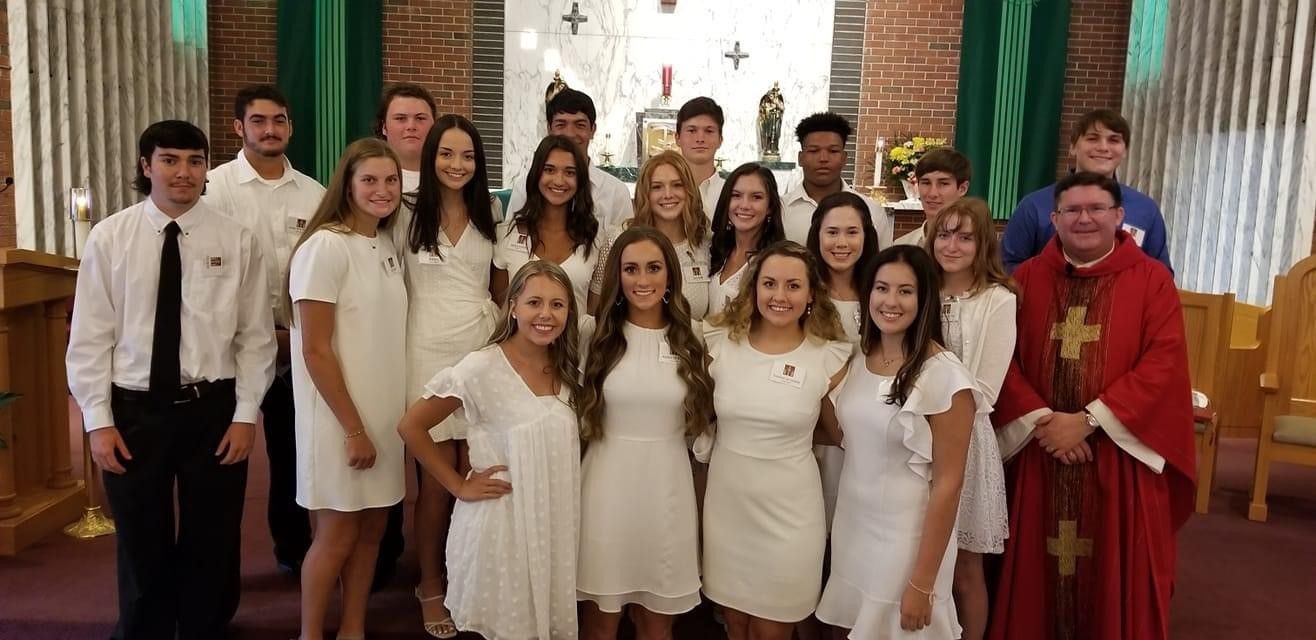
Confirmation deepens our baptismal life that calls us to be missionary witnesses of Jesus Christ in our families, neighborhoods, society, and the world ... We receive the message of faith in a deeper and more intensive manner with great emphasis given to the person of Jesus Christ, who asked the Father to give the Holy Spirit to the Church for building up the community in loving service.
Holy Marriage
By their marriage, the couple witnesses Christ's spousal love for the Church.
Please call the church office at least six months prior to your desired wedding date to begin preparation.
Sacred Scripture begins with the creation and union of man and woman and ends with "the wedding feast of the Lamb" (Rev 19:7, 9). Scripture often refers to marriage, its origin and purpose, the meaning God gave to it, and its renewal in the covenant made by Jesus with his Church. Man and woman were created for each other.
By their marriage, the couple witnesses Christ's spousal love for the Church. One of the Nuptial Blessings in the liturgical celebration of marriage refers to this in saying, "Father, you have made the union of man and wife so holy a mystery that it symbolizes the marriage of Christ and his Church."
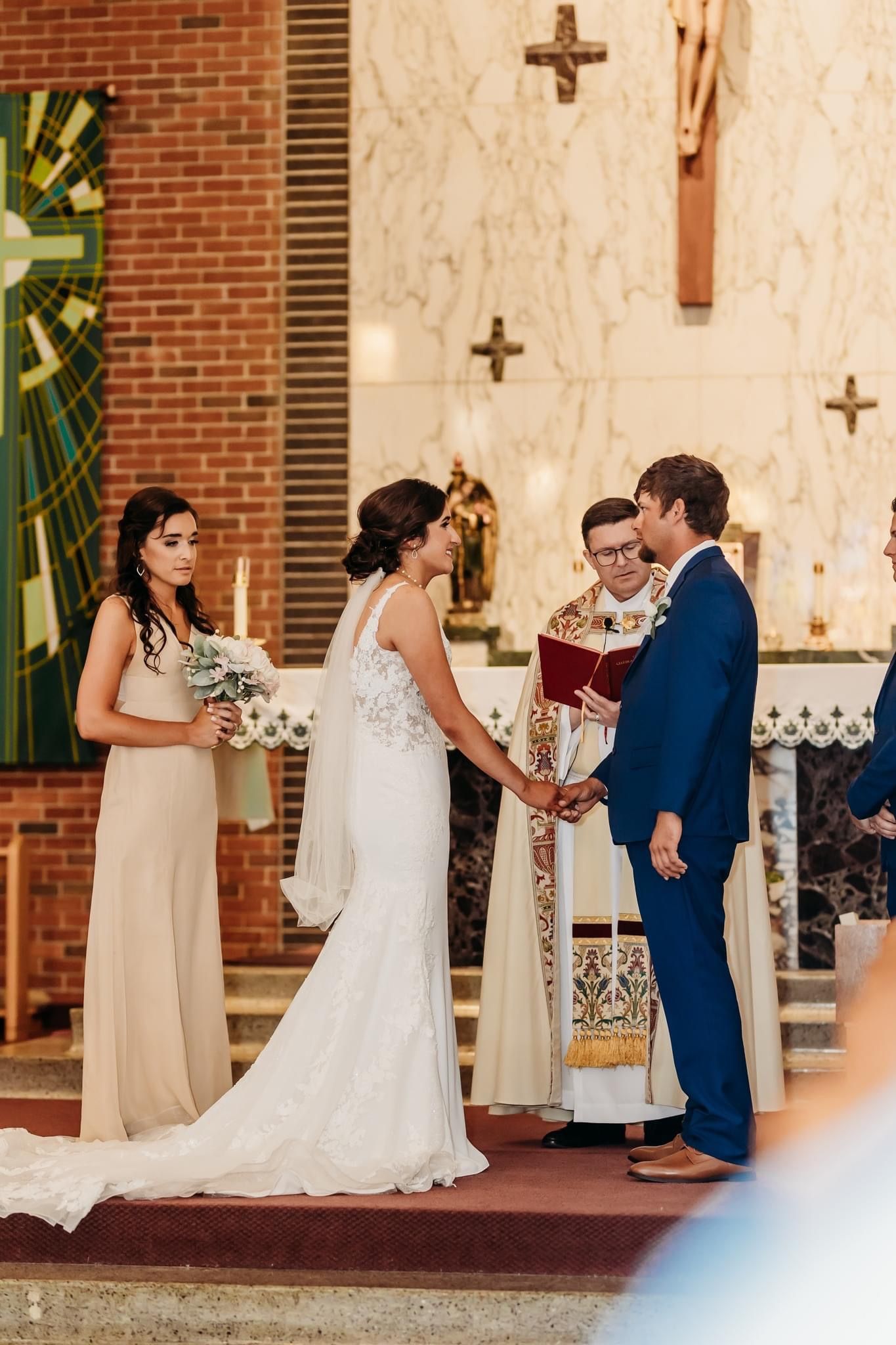
The Sacrament of Marriage is a covenant, which is more than a contract. Covenant always expresses a relationship between persons. The marriage covenant refers to the relationship between the husband and wife, a permanent union of persons capable of knowing and loving each other and God. The celebration of marriage is also a liturgical act, appropriately held in a public liturgy at church. Catholics are urged to celebrate their marriage within the Eucharistic Liturgy.
Holy Orders
Ordination to the priesthood is always a call and a gift from God.
From the moment of Jesus' conception in the womb of Mary until his Resurrection, he was filled with the Holy Spirit. In biblical language, he was anointed by the Holy Spirit and thus established by God the Father as our high priest. As Risen Lord, he remains our high priest ... While all the baptized share in Christ's priesthood, the ministerial priesthood shares this through the Sacrament of Holy Orders in a special way.
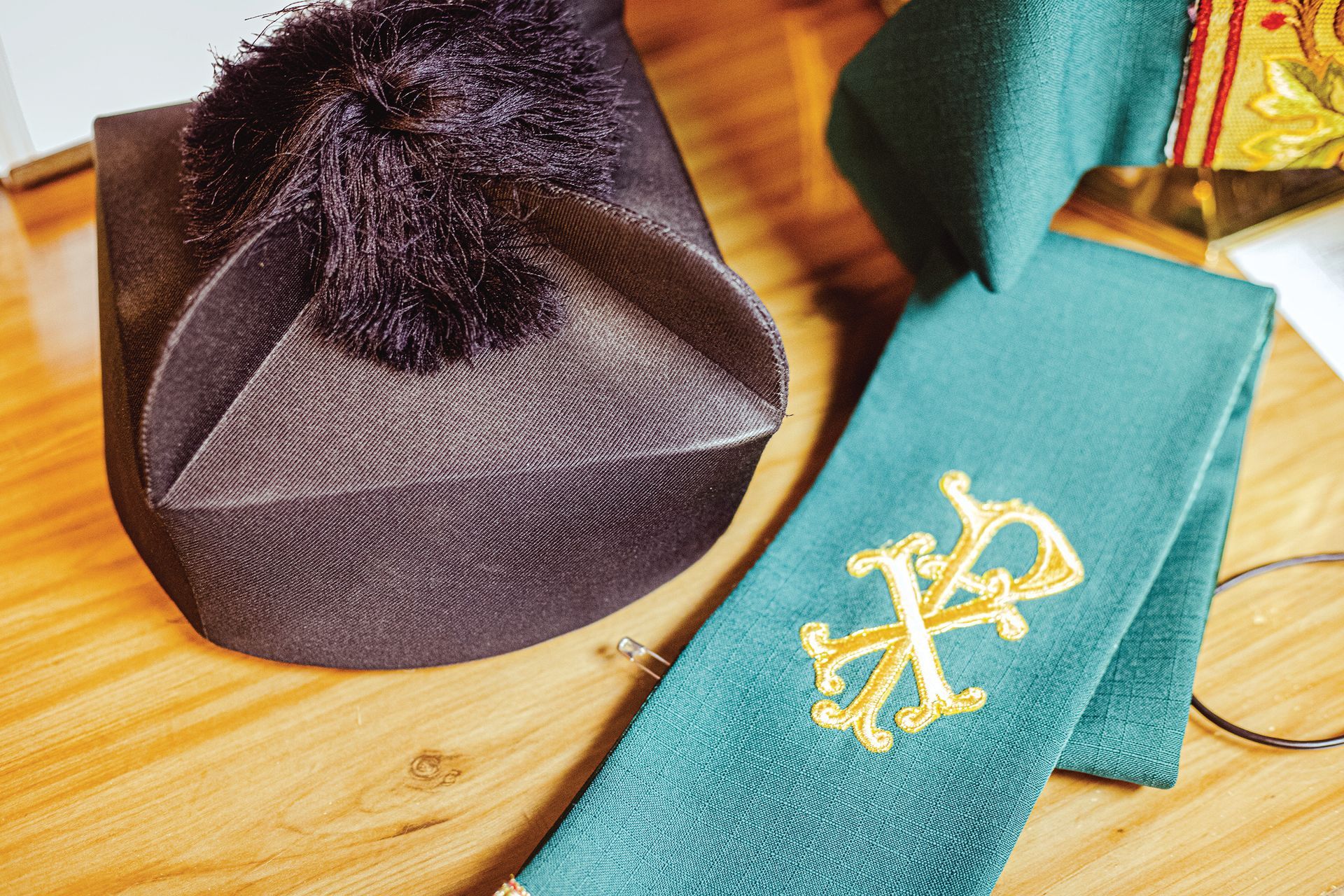
Ordination to the priesthood is always a call and a gift from God. Christ reminded his Apostles that they needed to ask the Lord of the harvest to send laborers into the harvest. Those who seek priesthood respond generously to God's call using the words of the prophet, "Here I am, send me" (Is 6:8). This call from God can be recognized and understood from the daily signs that disclose his will to those in charge of discerning the vocation of the candidate.
Anointing of the Sick
The core message of his healing tells us of his plan to conquer sin and death by his dying and rising.
In the Church's Sacrament of Anointing of the Sick, through the ministry of the priest, it is Jesus who touches the sick to heal them from sin – and sometimes even from physical ailment. His cures were signs of the arrival of the Kingdom of God. The core message of his healing tells us of his plan to conquer sin and death by his dying and rising.
The Rite of Anointing tells us there is no need to wait until a person is at the point of death to receive the Sacrament. A careful judgment about the serious nature of the illness is sufficient.
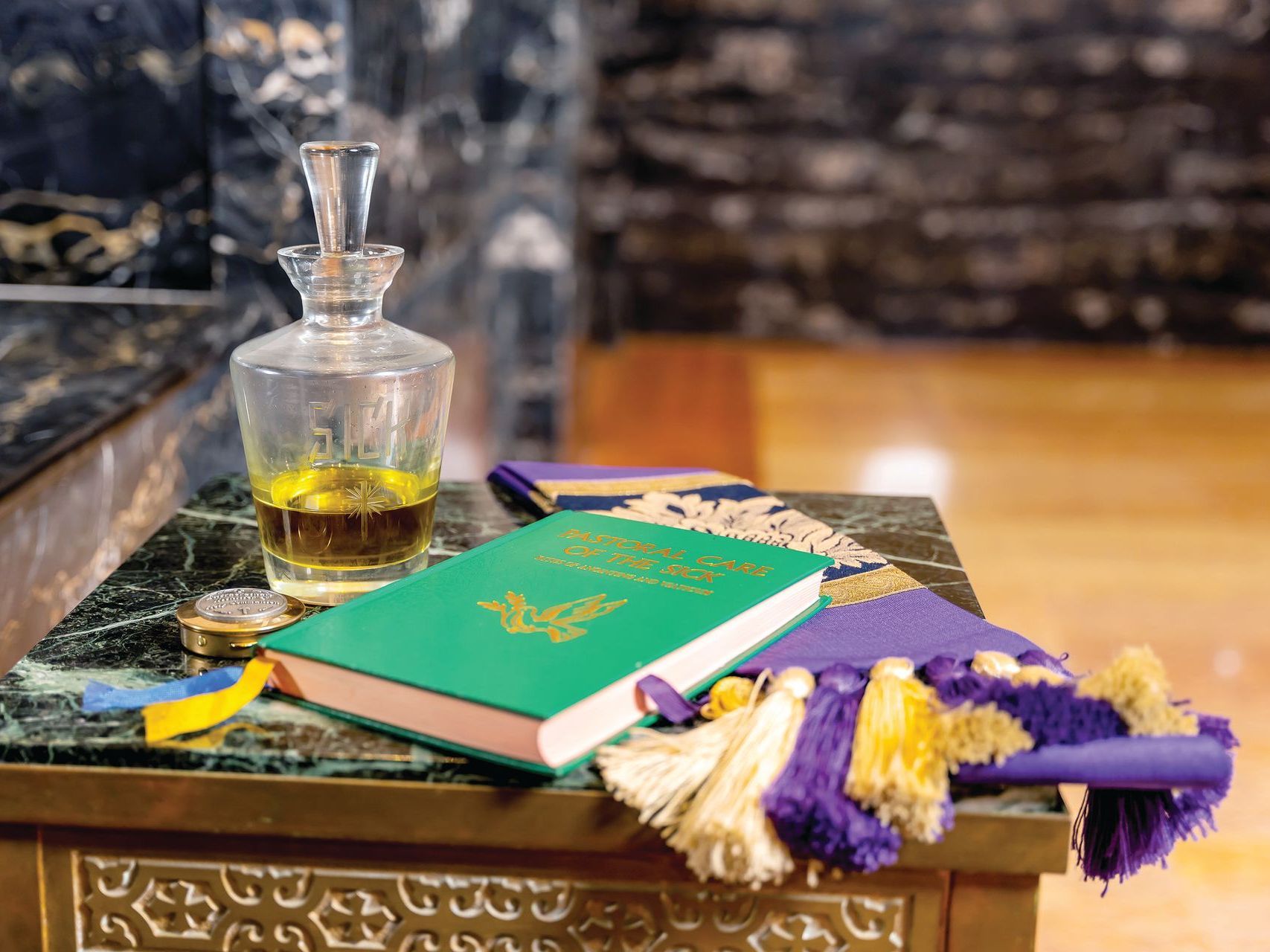
When the Sacrament of Anointing of the Sick is given, the hoped-for effect is that, if it be God's will, the person be physically healed of illness. But even if there is no physical healing, the primary effect of the Sacrament is a spiritual healing by which the sick person receives the Holy Spirit's gift of peace and courage to deal with the difficulties that accompany serious illness or the frailty of old age.
Parish Address:
213 S. Thomson Ave., Iowa, LA 70647
Mailing Address: PO BOX 849, Iowa, LA 70647
Office Phone: (337) 582-3503
Office Fax: (337) 582-6326
Office Email: straphael-iowa@hotmail.com
Office Hours: Mon-Fri 9:00am-Noon
Parish Address:
2110 Claude Hebert Rd., Lake Charles, LA 70615
Contact Saint Raphael Office
WeConnect | By LPi